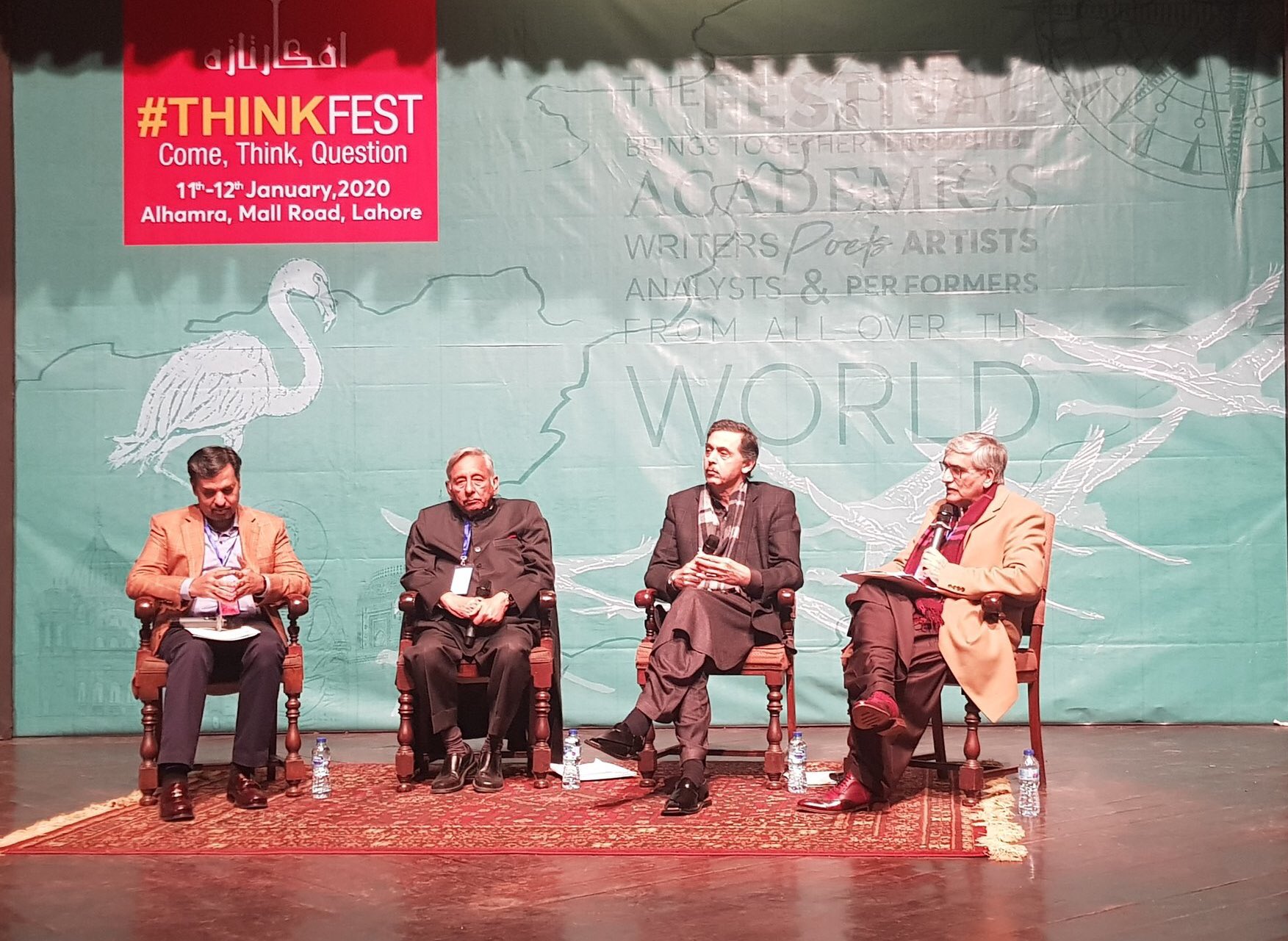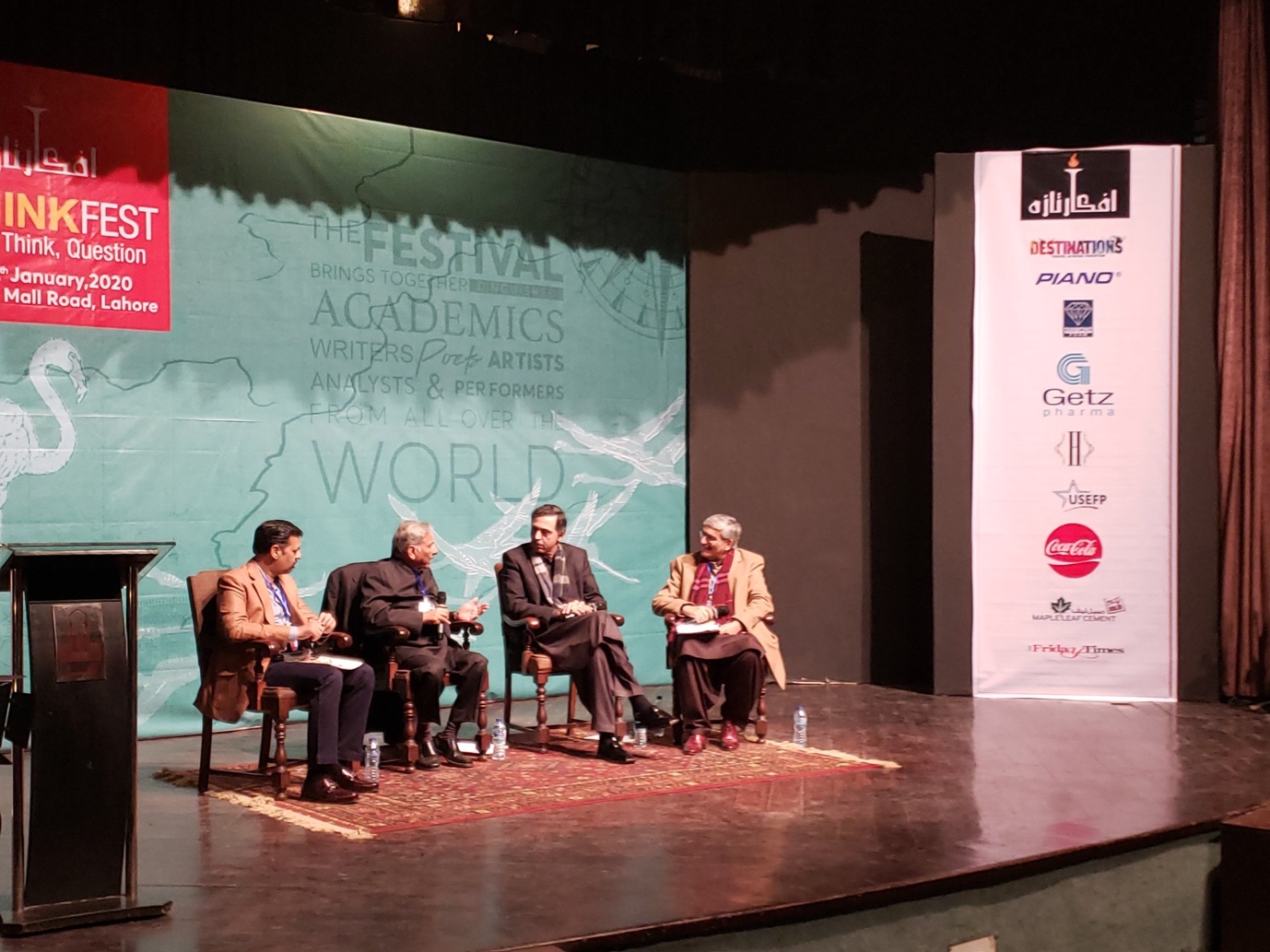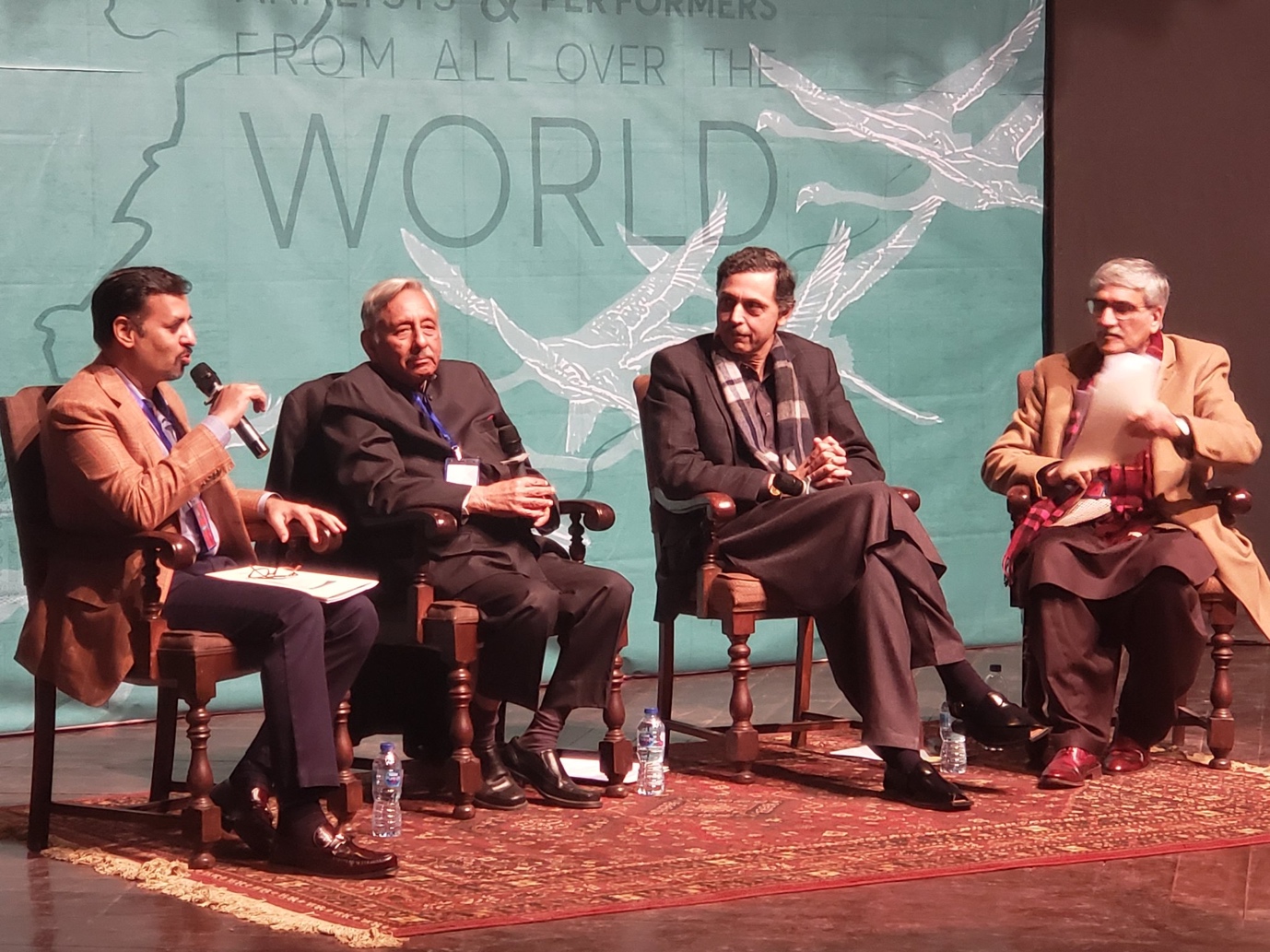Opening the session, Mr. Ahmed Bilal Mehboob said that the new local government laws passed by the Punjab and Khyber Pakhtunkhwa Provincial Assemblies appear to be gamechangers in the two provinces in Pakistan. In a country, where there has been little political support for fully devolved local governance, these laws provide for almost revolutionary measures some of which include direct elections of mayors and chairpersons, introduction of village councils and commitments on financial support.

Turning to the panelists, Mr. Ahmed Bilal Mehboob asked Mr. Arbab Shahzad, the architect behind designing both the KP and Punjab Local Government Acts, what was the experience of Khyber Pakhtunkhwa Local Government for four years and what was the thought process behind this? Mr. Shahzad Arbab said these laws have two distinct features, the introduction of Village Councils and the formation of Local Government Commission. On the Local Government Commissions, equal representation of Government and Opposition parties has been ensured so that they are equal stakeholders in the development of the lowest tier.
He said that new law ensured 30% allocation of the Public Sector Development Programme (PSDP) to be spent through local governments. He said that under the previous LG laws introduced under Musharraf, from 2002 to 2012, Khyber Pakhtunkhwa had used only Rs. 11 billion. However, after the introduction of the new KP LG system under PTI government, Rs. 45 billion were spent in just two years by the LGs. Under the new system, Rs. 40 billion are allocated for first year use by local governments in KP.
Moreover, he added that the LG system introduced under previous tenure of PTI in KP had encouraged competent, educated people to come forward. For instance, in Village Councils in Dir district of Khyber Pakhtunkhwa alone, majority of members were master degree holders. He said one of the reasons for PTI’s success in Khyber Pakhtunkhwa and why it has seen a return of a young lot of MPAs is the local government system which groomed young leaders. At least twenty MPAs in KP Assembly, elected through General Election 2018, have some Local Government experience. Similarly, at least nine women MPAs have directly come from Local Governments. Mr. Kamran Bangash, one of these young MPAs, is now a minister for Local Government in Khyber Pakhtunkhwa.

In a question to Mr. Mani Shankar Aiyar, Mr. Ahmed Bilal Mehboob asked that India has very elaborate constitutional provisions of Local Government Systems compared to Pakistan where we have only 2 to 3 lines about Local Government system in very general terms. He asked, “Do you think constitutional provisions have played a role in consolidating LG system in India? What is the main reason why the LG system has got so much success in India and what are the lessons to be learnt for Pakistan LG system when compare to India?”
Mr. Mani Shankar Aiyar said he does not know whether there are any lessons Pakistan can learn from India but his study of Local Government Laws, particularly the new Punjab LG law, offers a huge learning experience. When Rajiv Gandhi became Prime Minister, Mr. Aiyar was the cabinet member responsible for drafting constitutional amendments. At that time the Indian position on LG was precisely the same as in Pakistan since there was only one line about LG system in the Indian constitution. The Union government, through Constitution, was really mapping what it could do constitutionally as local governments are a state subject in India. Mahatma Gandhi had envisioned that democracy could work in India only with a full-fledged democracy at the grassroots. He understood that if you have democracy which came down from above, there will be muscle power and money power, hence it will be a democracy in vain. Unfortunately, Gandhi was killed but not before he announced his horror that the then constituent assembly/the drafting committee is not intending to make the Village Panchayat the foundation stone of our democracy. India, therefore, had a considerable gap for 40 years or so on and had a very effective form of parliamentary democracy and a very effective form of state democracy in our state capitals but when we looked below that, there was virtually nothing. So, at the time of drafting constitutional amendments towards introducing democracy at grassroot level, it was a very idealistic idea. We needed to ‘take power to the people’ as the then-PM Rajiv Gandhi said, borrowing a slogan from Lenin. After 27 years we finally got the constitutional amendments, 73rd and 74th.
The system as it is working in India reflects much more of the system in Punjab, which is not really about democracy but about effective local governance, added Mr. Aiyar. The KP and Punjab LG Acts provide more efficient functioning of the government at the local level. Because there is a huge involvement of state government in running the local government extending from districts to tehsils and up to village panchayat level, this system is very efficient because it assumes that there will be a state government and it will have representatives from the same political parties functioning at the lower levels, he commented. My Aiyar believed that the most exciting feature in the LG acts is the local finance commission which makes yearly recommendations and its recommendations are binding, as opposed to India where very few states follow the finance commission recommendations given every three years.

Speaking on the positives of the Indian Local Government system, Mr. Aiyar said that women representation has been the most significant accomplishment of Panchayat Raj system in India. There are almost 1.4 million women elected representatives in Panchayat system in India which is more than the entire number of women elected elsewhere in the whole world. He said the provision was for 30% women participation originally; however, women participation in the local government in India has been so effective that some 15 states have legislated to increase their participation to 50%. He said the representation of scheduled castes on the village panchayat is exactly equal to the share of their population in that area. He added, “In the Indian state of Karnataka, against 33% reservation for scheduled caste women in the reserved scheduled caste seats, the actual percentage is, just hold your breath, it’s 54%. And for scheduled tribes it’s 63%”. Mr. Aiyar said, however, the empowerment of these poor communities as well, for example in the state of Haryana, there has been legislation to tie candidacy to things like the presence of a toilet in the house, payment of utility bills apart from educational qualifications which have rendered 85% of the women, who won in the last local government elections, disqualified from participation this time. However, he concluded, “what we have succeeded in securing through this Panchayat Raj system is something we never intended, which is empowerment of the poorest sections, the most discriminated against sections of our society”.
Mr. Ahmed Bilal Mehboob then asked Mr. Mustafa Kamal what he thought about reforms in new LG laws in Punjab and KP and if he had any suggestions to improve them further. Mr. Kamal said we have to sit together to interpret Constitution’s article 140-A as different people or governments have interpreted it differently. He stated that the political mindset in Pakistan is not local government friendly; provincial governments have been controlling local governments through the bureaucracy and are hesitant to devolve powers to the lowest tier, an example of which is the 2015 Local Government elections conducted in Sindh which were due in 2010. He said the National Finance Commission should be tied to a Provincial Finance Commission where provinces are bound to provide funds to local governments at the district level. We need to create a sense of ownership from grassroots level, however, at the same time provincial governments have to delegate powers to LG representatives.

Mr. Shahzad Arbab said that political ownership is the key to the success of any local government system. He said he doesn’t know whether there will be political consensus on a constitutional amendment for local governments, but we could do without it as long as we have some political ownership of the system. He said that direct fiscal transfers to local governments in Khyber Pakhtunkhwa have been game-changers. Prime Minister Imran Khan proposed putting in a staggering 50% of PSDP through Local Governments and it is only due to Prime Minister Imran Khan’s support that we have new Local Government laws. He said the new laws truly empower the lowest tier as it gives more power now to the metropolitan mayor, for instance, by bringing departments like WASA under his control. Though empowering the local governments is crucial, we also need competent leaders at the grassroots and able civil servants for efficient governance, he added.
In a question from Mr. Ahmed Bilal Mehboob, on the direct election of mayors, Mr. Aiyar said that he believes the direct election of mayors would give them huge powers and may provide a tendency of making them a sort of local dictator. Other than that, the Local Government Acts in Punjab and KP would play a vital role in delivering democracy to the grassroots.
Syed Mustafa Kamal, in his closing remarks, disagreed with Mr. Aiyar on direct elections of Mayors. He said there is a disconnect between the government and the people and only a truly representative local government can bridge that widening disconnect. The direct election of mayors is giving them the power to choose their representatives.






